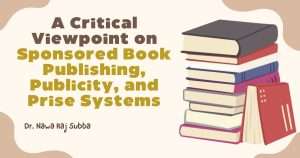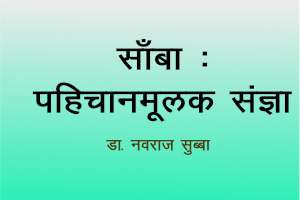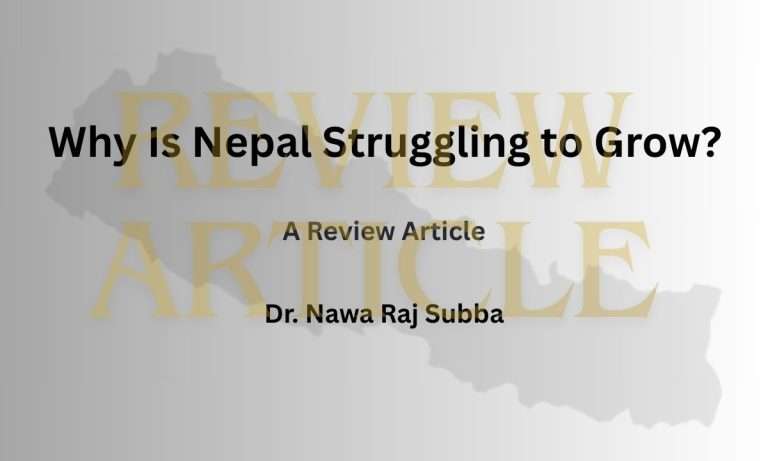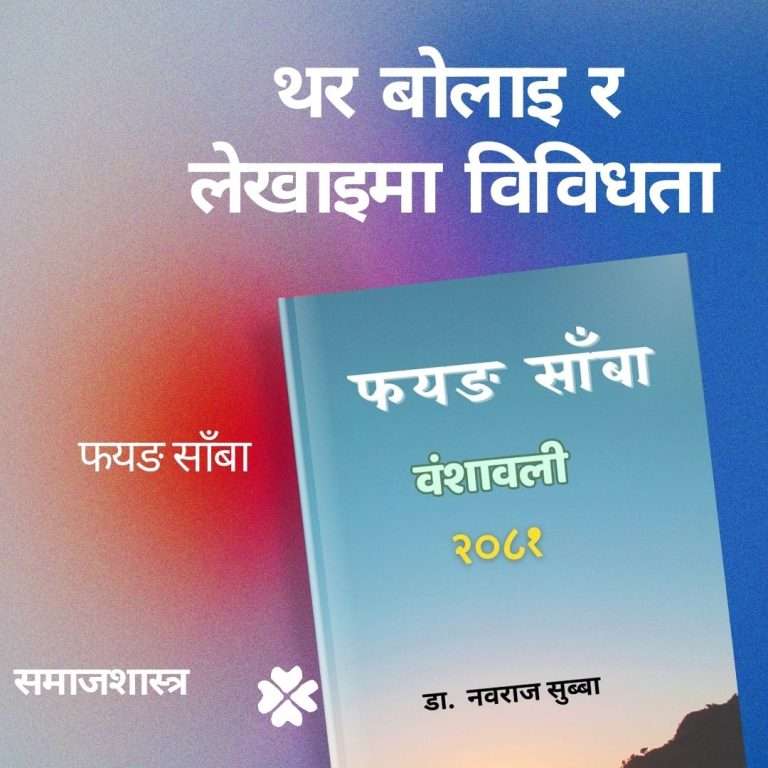A Critical Viewpoint on Sponsored Book Publishing, Publicity, and Prize Systems

Dr. Nawa Raj Subba
We are talking about sponsored book publishing practices. In book publishing and authorship, originality, creativity, and intellectual labour are absolutely indispensable. However, over the past ten years in Nepal, India, and Western nations, the emergence of inappropriate customs in book publishing and advertising has raised major concerns about independent thinking and literary ethics. This paper provides an exploratory analysis of these sponsored and planned activities.
Background
Book publication serves primarily as a means of spreading knowledge. However, literature, research, and independent thought suffer when this system gets under political or ideological influence as well as commercial ones. The convergence of writers, publishers, and prizewinners is currently creating a “literary ecosystem” where political, financial, or international agendas take precedence.
Developments seen in Nepal, India and the West.
What is the role of outreach and charity in publishing?
Through grants or sponsorships, certain private or semi-governmental organisations in Nepal and India help print books financially. Books published in this manner sometimes follow the ideas of those organisations. As in:
Materials aimed at local politicians or certain groups abound in publications by Nepal Pragya-Pratishthan, the Ministry of Culture, or several provincial administrations (Sharma, 2021).
Publications under “grant schemes” of Sahitya Akademi or other state governments in India undercast caste, religion, or nationality-centric literature (Rai, 2019).
Factionalism and suggestions for the reward system
The prizes from Nepal Pragya Foundation, Madan Puskar Guthi, and Bharatiya Sahitya Akademi seem to lack openness. Usually based on recommendations, networks, and political connections, most honours are based on Thapa (2022) and Bharadwaj (2020). Such honours do not recognise original talent or independent intelligence.
Sponsored publications and promotion in Western countries
Literary marketing and bestseller culture
Producing “bestsellers” in association with marketing firms for book sales is a habit followed in Western countries. Ghostwriters—pseudographers—help authors create books, and subsequently they acquire enormous media attention. For instance, it has come to light that publishers use techniques to falsify book sales figures in order to land on the New York Times bestseller list (Green, 2018).
Also spreading is the tendency to purchase ratings and articles on Amazon Kindle (Jenkins, 2020).
Award: Political or institutional biases
Some awards, such as the Pulitzer Prize, the Man Booker Prize, and the Man Booker Prize, have been subject to criticism. For instance, Margaret Atwood and Bernardine Evaristo shared the 2019 Booker Prize, which highlights the uncertainty of assessment (Clerke, 2020).
The Pulitzer Committee’s internal decision-making process is essential and covert (Simmons, 2017).
Nepal recently released a list of US- and country-supported writers, which went viral on social media. The independent writers are let down knowing that such authors have also wrapped up the Madan Award, popularly known as Garimamay of Nepal.
By blindly adhering to the Western style, publishing organisations are misrepresenting themselves to readers and the public. Today they are marketing by publishing a list of books selected for a certain award and a list of famous or influential personalities of a certain year. It is clear that Western policy also influences this.
Effects and possible consequences
These are the results of such sponsored activities:
Literary diversity: marginalised writers are strong and original.
Colonisation of knowledge results in the marginalisation of non-Western or independent ideas.
Decline in critical thinking: ‘Award-winning’ writing is only encouraged.
Different methods and answers
Open-access writing Open Access Publishing: dependent on funding or advertising, it involves using publicly accessible journals or platforms, often available at reduced costs or free of charge.
Opening the review process: Growing public review is a trend in the publishing and award domains.
Encouragement of Community Evaluation: Support of a book evaluation system developed by the reader community.
Final Thought
Publishing books has to honour creative ideas, the search for truth, and independence. But today, sponsored publishing and the prize system make literature a weapon of markets, politics, and power relationships. Consequently, awareness, criticism, and the building of another system are unavoidable.





